21 minutes
Star Quotes

Introduction
Star Quotes are what I am left with when I finish reading a book. Whenever I add a new book in my bookshelf, I make sure to include the Star Quotes from that book in there, next to a review (example).
This book is a compilation of my thoughts about some of my favorite Star Quotes.
If you would like to dive deeper into the quotes of a book, you may click the link to the review (located under each image). Maybe you’ll find a Star Quote of your own in there!
I hope you will get enjoyment from this dynamic collection!
“You are a person, not a job.”

This might sound trivial, yet it’s so easy to forget. When you associate your entire worth with the role you’ve played in an organization, it’s easy to feel demolished when this role is taken away from you. It can quickly lead to an identity crisis.
First and foremost, you are a person. A person with dreams and aspirations. Someone who, hopefully, wants to leave the world a better place than they first encountered it. A person with friends, meaningful relationships, maybe a spouse, maybe children. What makes them love you is not your job. It is you.
Losing a job should not push us to lose ourselves. In fact, it is a great opportunity to rediscover who we really are. It’s a moment to reflect on our needs, our desires, and our values. It’s a chance to reclaim what truly matters—our passions, our creativity, and the people who care about us, regardless of what we do for a living.
You will have many jobs in your life, and none of them deserve the power to define you. A job is a chapter, but it is not the entire story. Whether you find yourself thriving in a new role or stepping into an entirely new path, remember that you are the constant. You are more than the work you do—your worth comes from who you are, not from the title you hold.
When your job changes, don’t let it change your sense of self. Take this opportunity to reconnect with what makes you feel alive, with what makes you proud, and with what brings you peace. You are a person, not a job—and that’s something no company or career can ever take away from you.
“The more I understand the real skills of leadership in a learning organization, the more I become convinced that these are the skills of effective parenting.”
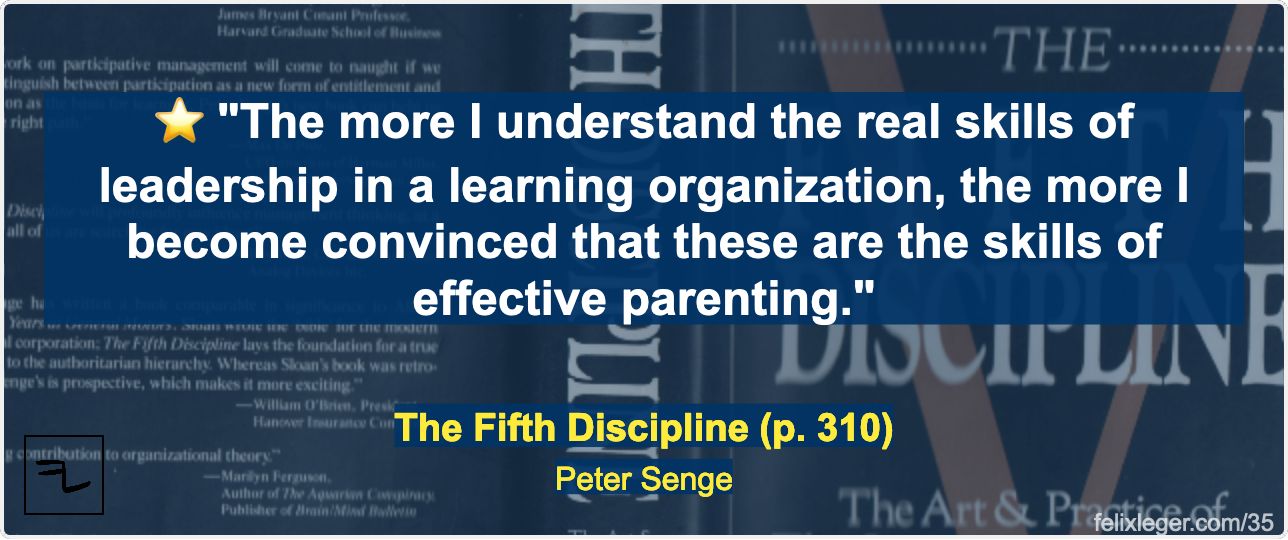
At first glance, leadership and parenting might seem worlds apart. One operates in the professional realm, the other in the deeply personal. But the more I reflect on this, the more I see the profound truth in Senge’s words.
Both roles share a common goal: nurturing growth, potential, and a sense of independence in others. As leaders, we are tasked with creating environments where our teams can thrive, just as parents strive to create spaces for their children to flourish.
Creating Safe Spaces: Whether it’s a home or a workplace, trust and safety are the foundation of exploration and innovation.
Encouraging Learning: Growth comes from curiosity, experimentation, and sometimes failure. Great leaders and parents embrace these as opportunities, not setbacks.
Modeling Behavior: Whether it’s a child watching a parent or a team looking to their leader, people learn more from what we do than what we say.
Senge’s quote is a reminder that leadership isn’t about control or authority. It’s about empathy, understanding, and empowering others to reach their full potential—qualities at the heart of both effective parenting and leadership.
What do you think? How have your experiences in parenting or leadership influenced your approach to the other?
“You get what you reward for.”

Let’s imagine two teams of avid gamers, both playing the same arcade game of the month at f-l.ca/game. The two teams don’t know about each other, but they’re given very different objectives:
Team A: They’re told that the player with the highest score at the end of the month will win $500.
Team B: They’re told that if their collective highest scores exceed 1,000,000 points, they’ll share a meal at a great restaurant totalling $500.
Here’s what happens:
At first, players in Team A keep their scores to themselves. Only near the very end of the month do they start revealing them. For a while, Alfred thought he was leading with 142,000 points—until, moments before the deadline, Albert submitted a score of 300,000, more than doubling Alfred’s.
Albert didn’t achieve this lightly. He meticulously researched game mechanics, studied walkthroughs on GameFAQs, analyzed YouTube videos of expert gameplay, and practiced tirelessly all month. However, Albert kept his strategies a closely guarded secret to secure the $500 prize for himself.
When the challenge ended, Albert walked away with the prize and bought himself a pair of fancy headphones. Meanwhile, the rest of Team A could only wonder how he pulled off such a high score.
Final Scores for Team A:
- 1st place: 300,000
- 2nd place: 142,000
- 3rd place: 112,000
- 4th place: 100,000
- 5th place: 89,000
- TOTAL: 743,000 points
Team B’s approach was entirely different. From day one, players shared their scores and strategies openly. They cheered each other on and collaborated to improve.
One standout member, Brandon, wasn’t particularly skilled at the game due to poor motor skills. But he played a key role in the team’s success by studying walkthroughs and expert videos, then sharing his insights with others. This collective effort boosted everyone’s performance.
By the end of the month, Team B not only surpassed their goal but also created an environment of mutual encouragement and growth. They celebrated their victory with a pizza feast, enjoying their hard-earned reward together.
Final Scores for Team B:
- 1st place: 300,000
- 2nd place: 281,000
- 3rd place: 269,000
- 4th place: 152,000
- 5th place: 11,000
- TOTAL: 1,013,000 points
It’s clear why Team B scored higher collectively—they had a shared objective that incentivized teamwork. But here’s the striking part: even individual scores in Team B far outpaced the averages in Team A.
By collaborating, Team B not only achieved their group goal but also pushed each individual to greater heights than they might have reached alone. The act of sharing knowledge and supporting each other created a win-win situation, where the reward wasn’t just the pizza—it was the growth and camaraderie along the way.
Meanwhile, Team A’s competitive mindset created silos. Although Albert’s score was impressive, the lack of shared learning meant the rest of the team couldn’t improve nearly as much.
So, the question is: in your own pursuits, are you striving to compete, or to collaborate?
“It is not wise to try to treat a severe depression on your own. A professional consultation is a must.”

There’s a limit to what self-help can do for anyone. If you’re hurting inside, don’t hesitate to reach out for qualified help. It might feel uncomfortable at first, but it’s far better than feeling lonely and lost.
I’ve been there myself—that overwhelming feeling of navigating stormy waters in a sinking boat. It’s no way to live.
In Quebec, you can find a professional that fits your needs online (https://www.ordrepsy.qc.ca/english/find-help). That’s how I found mine, and the impact was life-changing for me. One session could be the spark you need to begin healing.
Few things are harder than putting aside our pride and asking for help. But if you’re open to the idea, I encourage you to take that step without hesitation. You’re worth it.
“Managers who try to be liked create misery.”

I’m the type of person who gets fueled by feeling appreciated by their peers. But that’s a truly terrible way to lead a team. Sooner or later, this crutch will lead to problems.
To be an effective leader, you must not shy away from making tough decisions and standing by them. You must be willing to give that honest feedback someone might dread hearing. You must be able to set clear expectations that will push your team out of their comfort zones.
Such is the price of being the leader. Actions aligned toward you being liked must become a second-order priority, for the benefit of the group.
“If you live by the compliment, you’ll die by the criticism.”

A compliment is to desserts what criticism is to vegetables. We would all rather hear a compliment that will validate our self-esteem, but to indulge in compliments while avoiding criticism is a trap that will inevitably lead to failure. While compliments can make us complacent, criticism helps us grow.
Nobody is perfect. We can all improve in meaningful ways that will make both our lives and the lives of those around us better. When we pay attention to criticism given in good faith by people who have our best interest at heart, we do ourselves a disservice by ignoring what they mean. Over time, an accumulation of avoidance of criticism can only lead to a deeply personal failure where we will have to face an unavoidable criticism, the harshest one there is: our own.
Affably thank the person who compliments you, and generously hug the person who shows you how to improve (if they let you).
“Improving daily work is even more important than doing daily work.”

Improving daily work is even more important than doing the daily work.
This applies to every type of work. Whether it be bleeding edge technological work that embeds AI, or the chores we have to do to keep our house in order, this principle applies.
Why is it so that we cannot do things the way we have always done them?
Change is the only constant—if you’re not improving, you’re falling behind.
Improvements boost efficiency, making work faster and less stressful. This creates a virtuous cycle: the more you improve, the easier life becomes.
Improvements are their own reward. Gaining new abilities doesn’t just improve your performance—it also boosts your mental health.
The world is constantly evolving, and we can’t always predict what’s next. The best way to stay ready for unexpected challenges? Build excellence in the tasks you can control.
Mastering the repetitive makes room for the extraordinary.
“The most valuable thing you can do is mentor or learn from your peers. Learning is for everyone and it is from there that we will create competitive advantage.
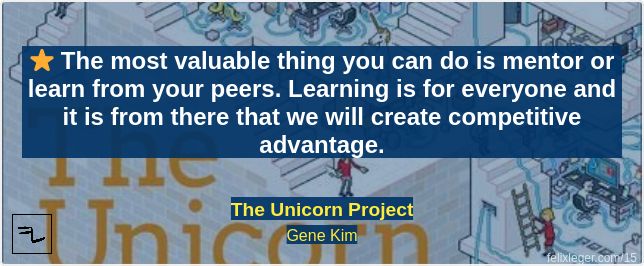
Let me tell you a story.
Brent was a star in the IT department at Parts Unlimited. (Some of you may already be familiar with Brent.) Over ten years, he became the person everyone relied on to solve complex problems. But Brent didn’t stop there—he understood that his greatest contribution wouldn’t be the problems he solved alone, but the resilience he could build within his team.
Every time Brent resolved a tough issue, he documented it meticulously. His notes didn’t just explain the solution—they shared the thought process behind it, empowering others to think critically. Brent also made mentoring a priority. Instead of solving problems for his colleagues, he solved them with them, walking them through his approach step by step. Regular knowledge-sharing sessions turned junior developers into seasoned professionals.
More than that, Brent fostered collaboration. He worked to break the “one-man army” culture, encouraging the team to tackle challenges together.
Then one day, disaster struck. Brent was in an accident and couldn’t work for two years.
But Parts Unlimited didn’t collapse.
Thanks to Brent’s efforts, the team had the knowledge and confidence to handle anything that came their way. His documentation provided a roadmap for solving problems, and his mentoring had created a team of skilled, empowered professionals. When Brent finally returned, he found a thriving, resilient team. His colleagues didn’t just survive without him—they thrived, because he had set them up for success.
Brent wasn’t just remembered for his technical brilliance, but for his leadership and dedication to creating a culture of learning and collaboration.
The Lesson:
No single person should ever be the sole keeper of knowledge. Mentorship, documentation, and knowledge-sharing aren’t just “nice to have”—they’re essential for resilience and long-term success.
“When you say yes to others, make sure you are not saying no to yourself.”

Recently, I invited a friend for a virtual coffee. Their response caught me off-guard: a simple, No.
At first, I was disappointed. I had been looking forward to catching up. But then my friend explained why they couldn’t meet, even virtually. They had just started a second job, and their first job was especially demanding at this time of year. Until January, their schedule was completely packed. Meeting simply wasn’t an option. That’s when I realized something important: what felt like a small ask for me was an unreasonable ask for them. Instead of fearing that saying no might hurt our friendship, they made the courageous choice to prioritize their own well-being.
This made me reflect on all the times I said yes to others when I should have said no—when I was too drained, too overwhelmed, or simply not ready. It’s so easy to fall into the trap of wanting to please everyone and playing the role of the “good friend.” But when we do that at the expense of our own mental health, everyone loses.
To my friend: thank you for being honest with me and for taking care of yourself. As your friend, I couldn’t ask for a better outcome. We’ll catch up when the time is right for both of us.
“Innovation thrives in discarded spaces.”

Where does innovation truly begin? Often, it starts in the most unexpected places. We might call such spaces “discarded spaces.”
In my previous role, I had the joy of testing this idea. In a forgotten corner of the office—part living room, part playroom—I set up a retro gaming station using an old whiteboard for instructions and high scores. At first, it was just a way to share my passion for 80s and 90s games, but I was curious: How does innovation truly thrive in such neglected areas?
The answer? Discarded spaces are fertile grounds for creativity. With no reward for maintaining the status quo, these spaces become playgrounds for experimentation and evolution. Within a year, the humble gaming corner began to grow, fueled by the excitement of colleagues who eagerly contributed and tried to one-up each other’s creative additions. High-score tracking evolved into a graph. Decorations appeared, the space expanded, and people felt free to express their creativity—sparking a virtuous cycle of engagement and innovation.
Encouraged by this success, I launched another initiative—this time in the cafeteria, where a small table and chairs became a collaborative puzzle station. The results were magical: complex puzzles came to life as colleagues pitched in effortlessly. New connections were formed, both on the table and among peers, turning a forgotten corner into a hub of camaraderie and shared purpose.
Even small changes, like adding books to an empty library or leaving a game of Bananagrams on a cafeteria table, had noticeable impacts. These subtle additions sparked curiosity and engagement, showing how even the simplest interventions can breathe life into forgotten spaces.
Perhaps the greatest benefit of these experiments was how they made work more enjoyable and engaging. When we get the chance to use our creativity in these overlooked areas, work becomes fun, collaboration thrives, and productivity naturally follows. The energy created in these spaces isn’t just confined to them—it ripples outward, energizing the workplace as a whole.
Imagine the potential if we reframed “discarded spaces” as “innovation incubators”—low-risk zones where failure isn’t penalized and ideas can thrive. Look around your work environment. Is there an overlooked corner waiting to be transformed into a hub for creativity? Your next big breakthrough might just be hiding there.
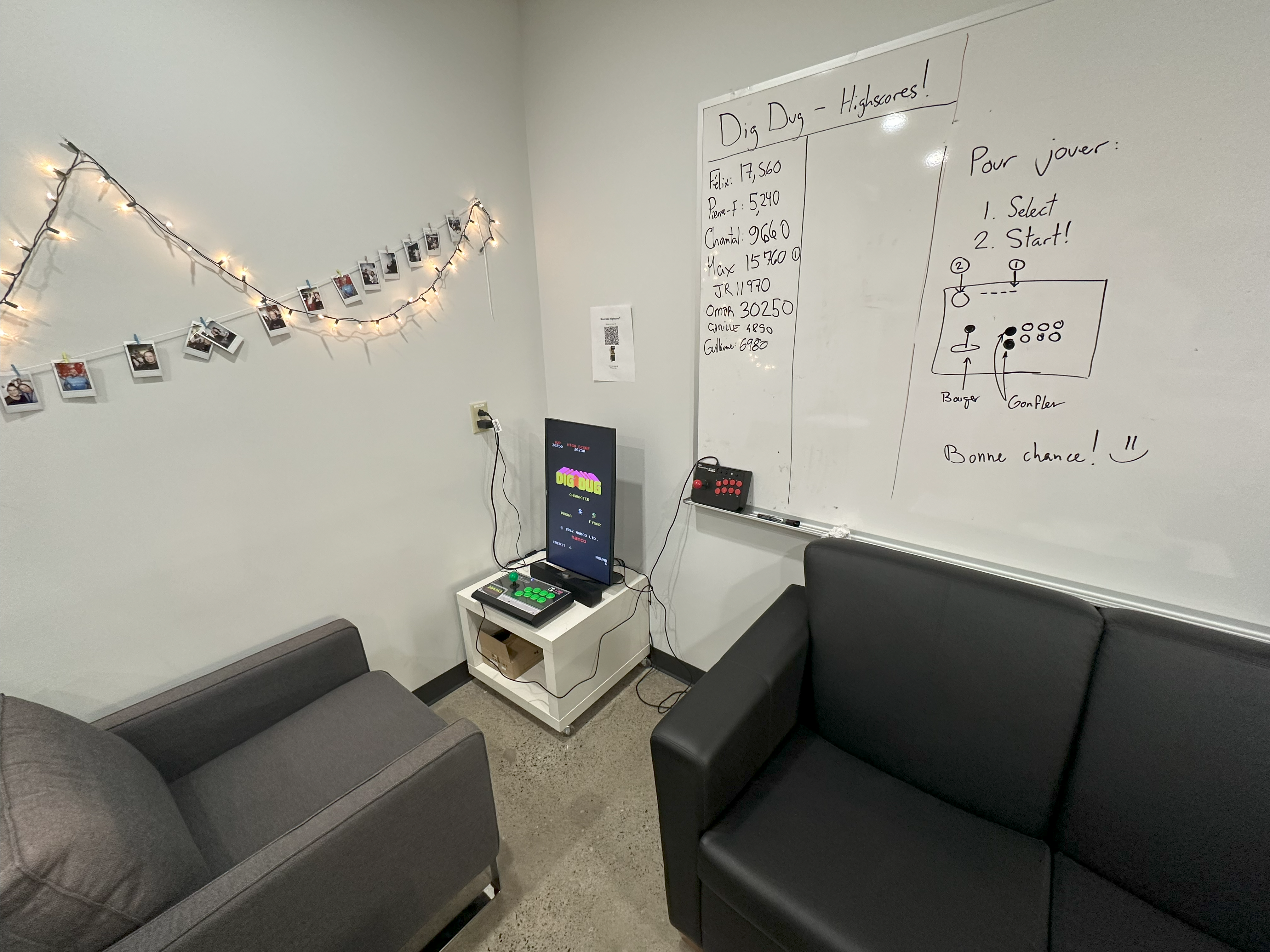
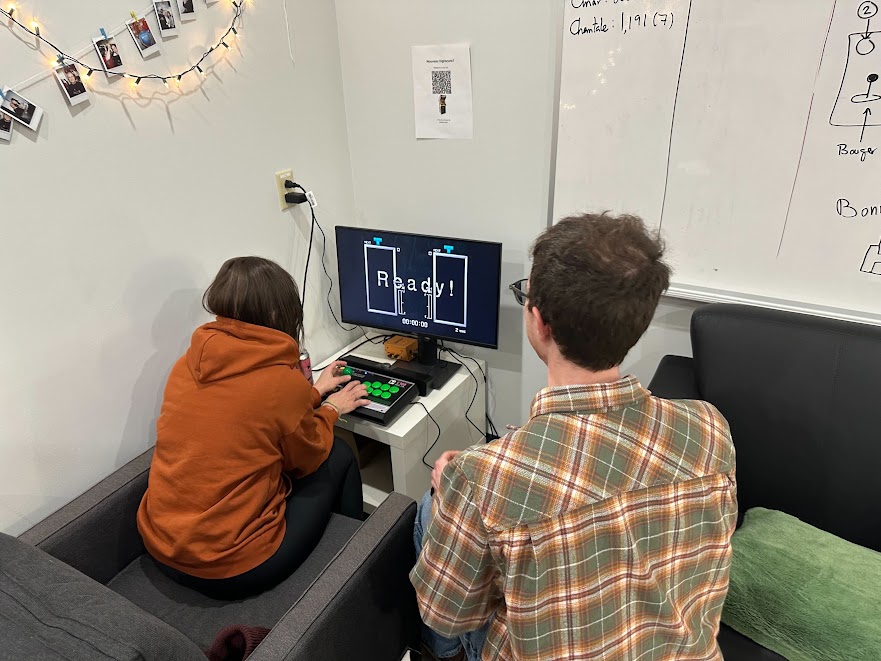
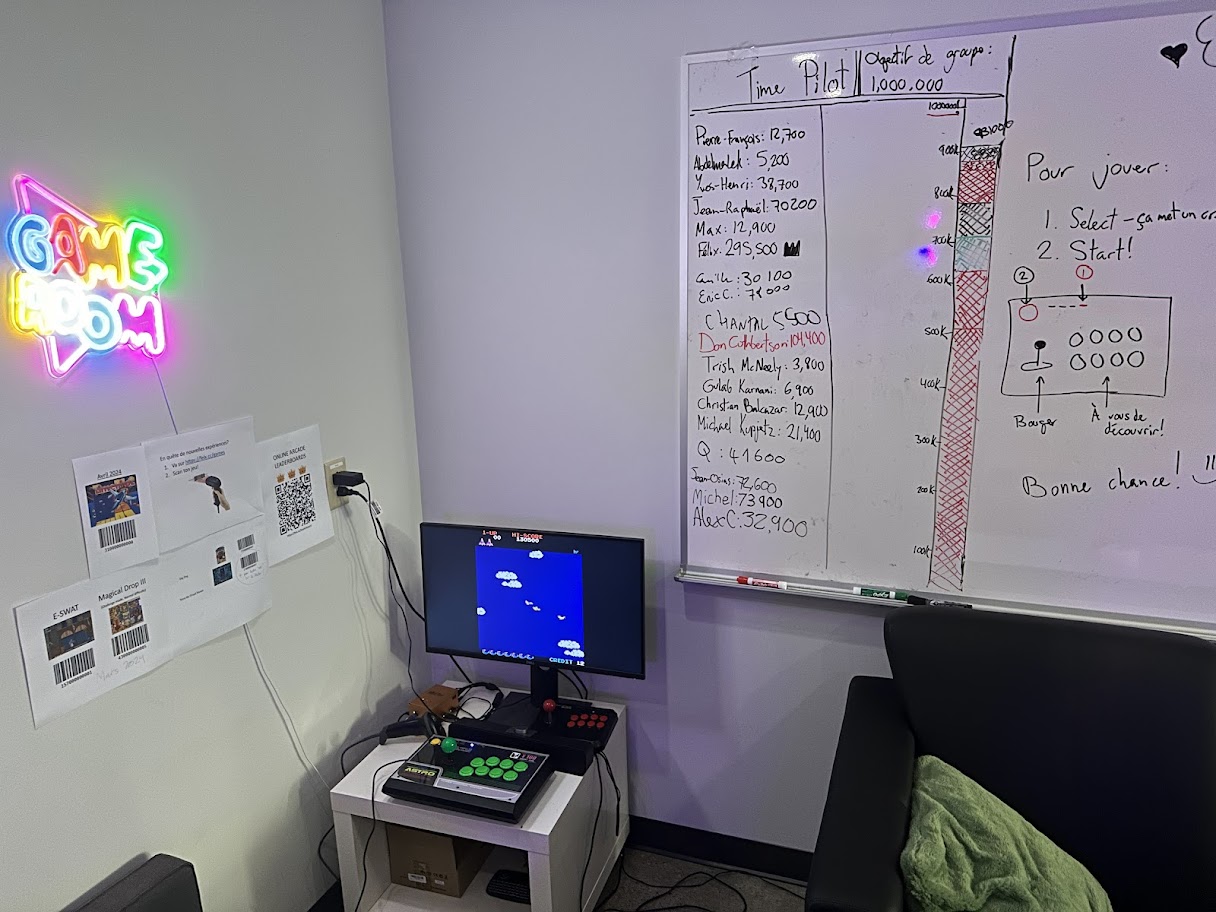
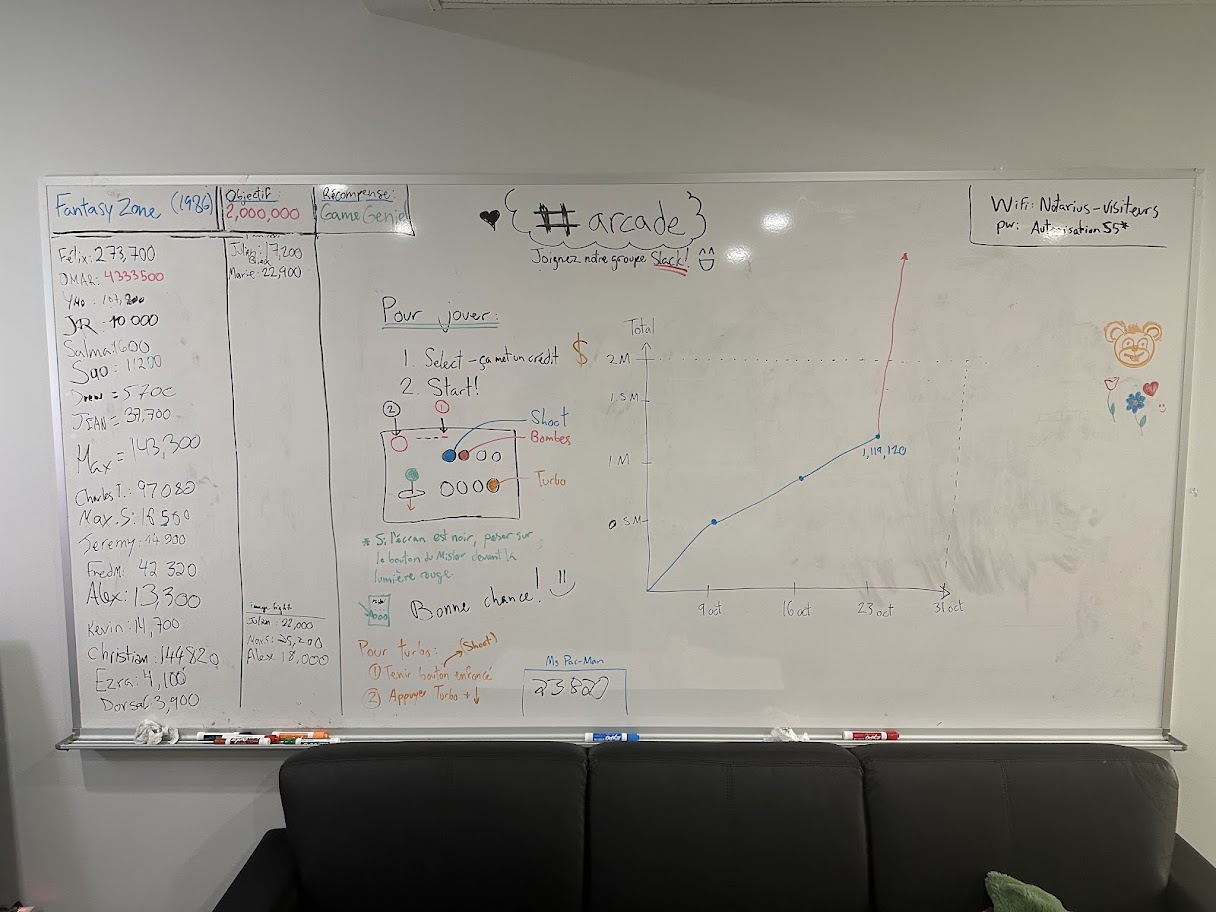
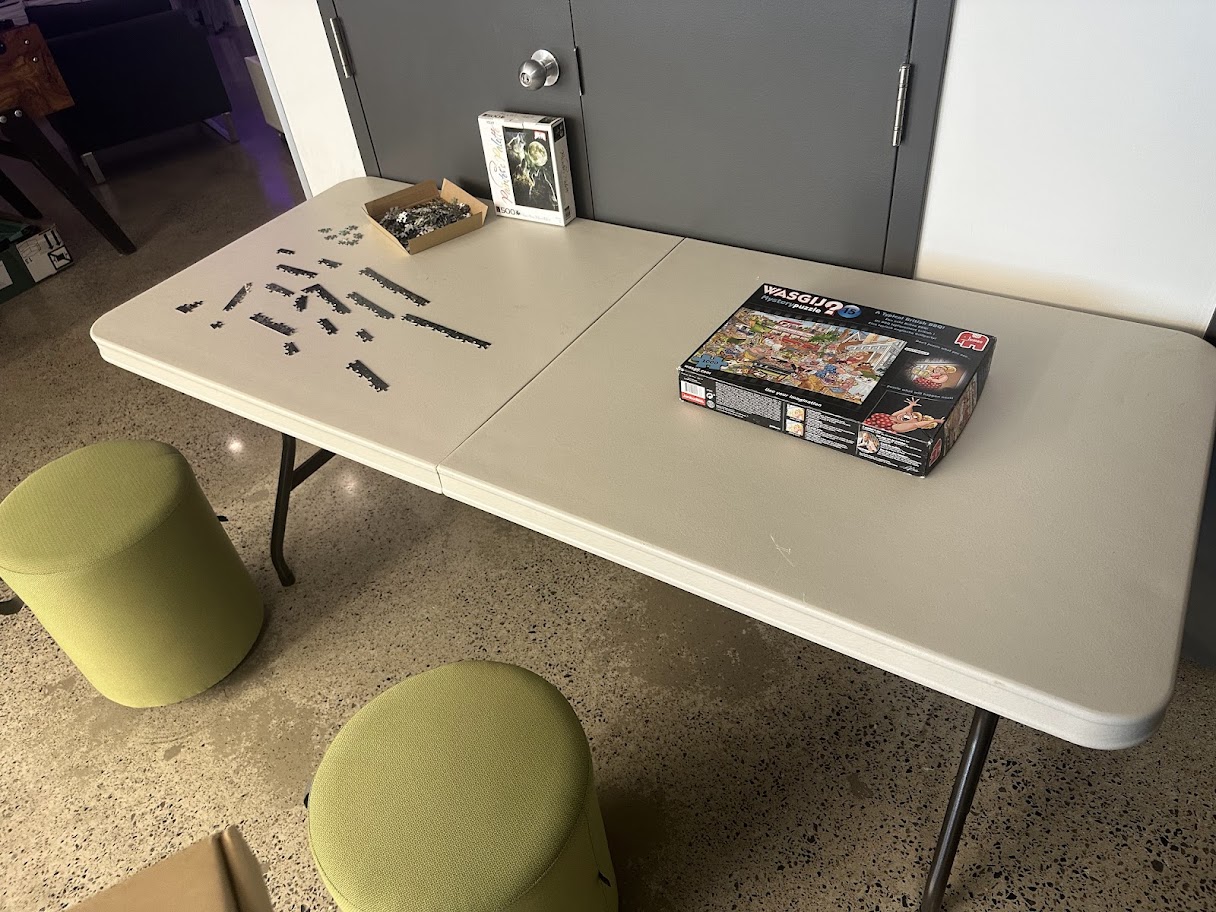
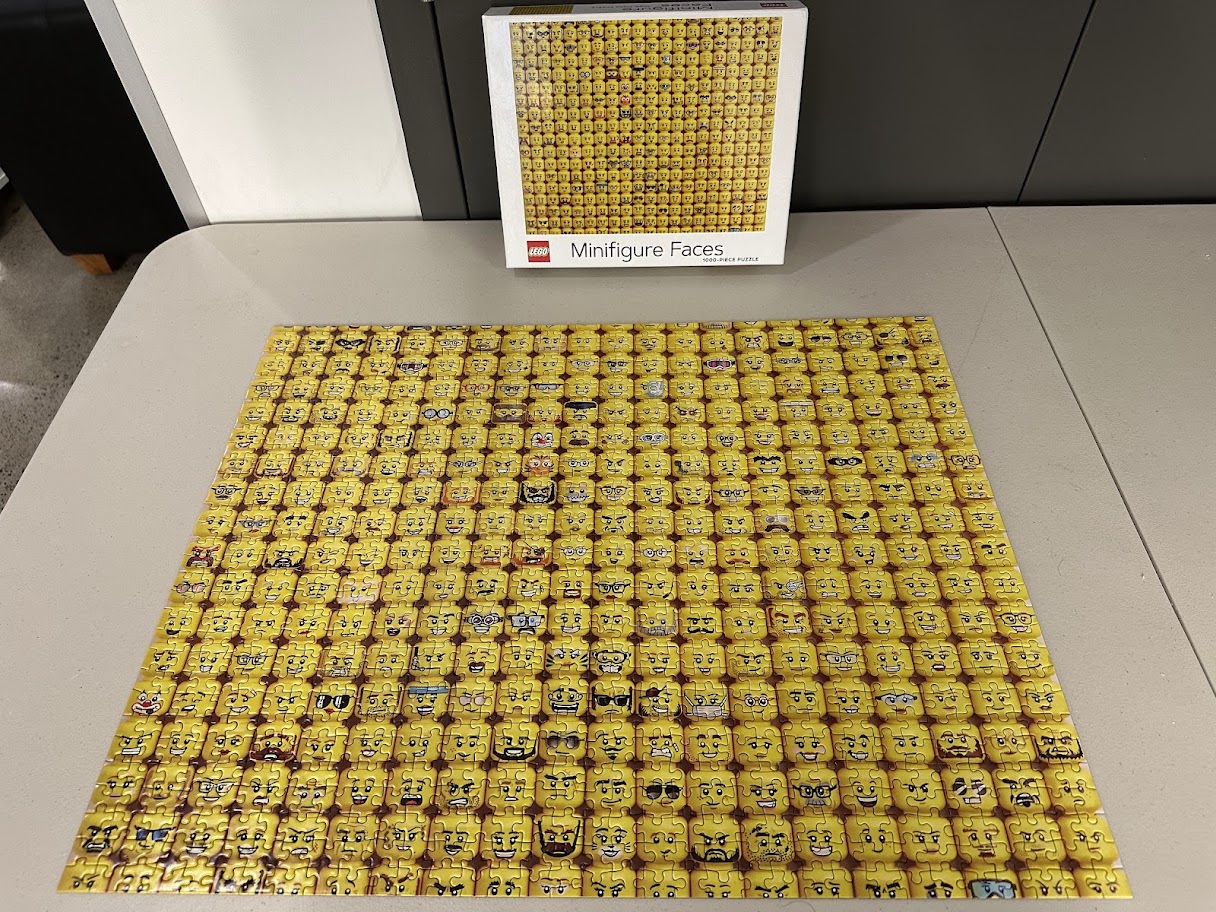
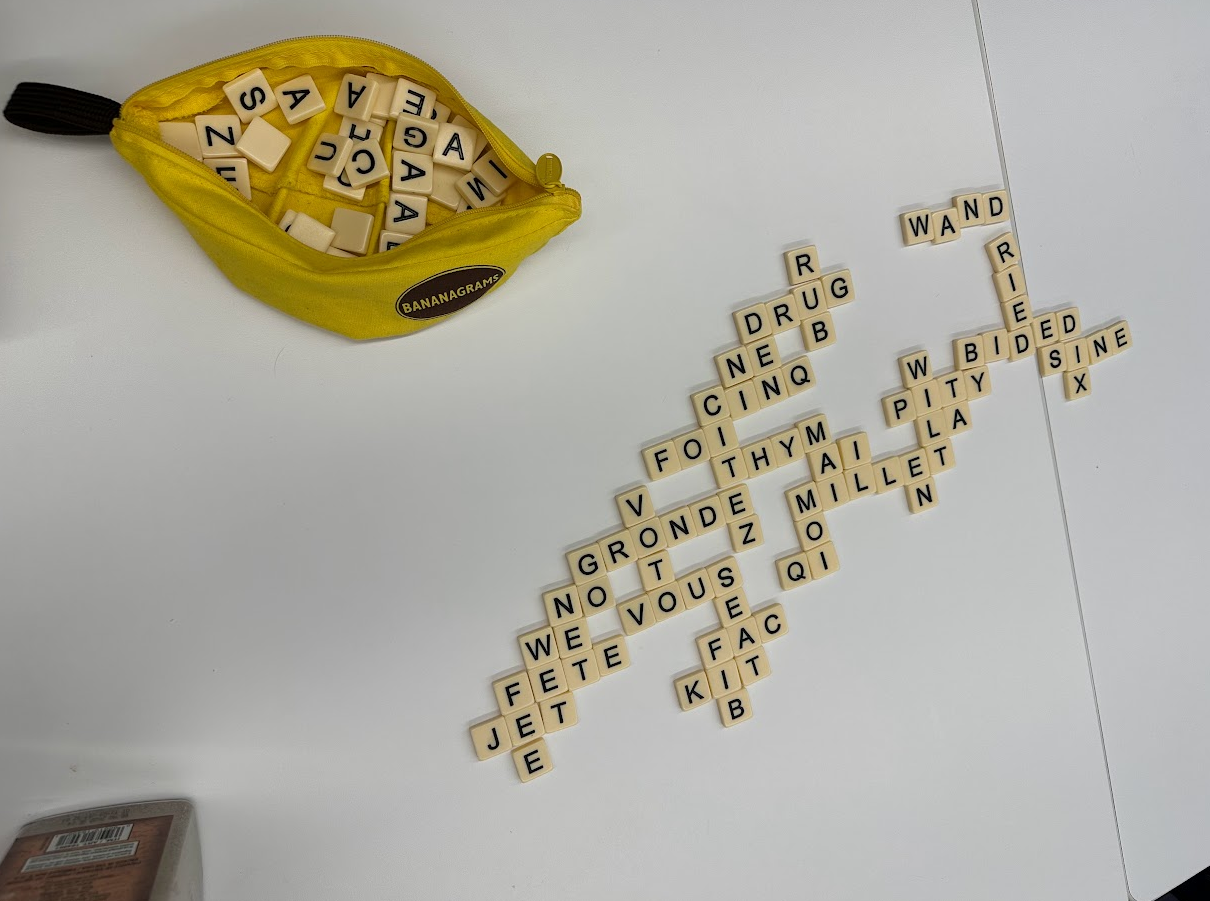
“We are rich not through the things we own, but through the relationships that nourish our soul.”

I hope this quote is not news to anyone. Yet, in challenging times like these, as the purchases of Christmas gifts loom, it feels especially important to remind ourselves of this truth.
There’s an illusion many of us chase: that wealth lies in possessions. A nice car, a big house, the latest gadgets, or even a collection of books and video games — these things promise joy but often leave us wanting more. No matter how much we accumulate, it’s never enough. True wealth, I’ve come to realize, isn’t about having the most, but about being fulfilled.
Imagine someone living at the top of the tallest building, surrounded by luxury but disconnected from others. Such a life might seem enviable at a glance, but without meaningful relationships, it’s an empty kind of existence. I feel for those who dream of shielding themselves from others, as they may miss out on the profound richness of connection. A rich life is built on the people who stand by us, who listen, who care, and who make us feel seen and valued. It’s in these moments of connection that our inner universe expands.
I used to own many things — hundreds of video games, CDs, books. These objects brought fleeting joy, but they also served as a barrier, keeping me isolated. I was not happy, and deep in my heart of hearts I knew I was headed on the wrong path. Today, I live in a modest basement apartment. It’s not extravagant, and it can feel cramped at times. However it’s filled with something far more valuable: the warmth of conversations and the magic of human connection.
When we’re alone, truly alone, it’s easy for our minds to spiral. Isolation is one of the most painful states to endure because it deprives us of the essential connections that ground and sustain us. And yet, a simple act of connection — a friend answering your call, offering advice, or going out of their way to help — can be transformative. These moments remind us of our shared humanity.
Over the years, I’ve learned to prioritize relationships. Attending meetups, joining a choir, or simply reaching out to someone new has introduced me to incredible people. These relationships have been lifelines, especially during challenging times like now, as I navigate a career transition. They remind me of the beauty and resilience of humanity. And when the tables are turned, I’m eager to offer the same support in return.
As humans, our needs are simple: food, water, shelter — and connection. It’s the one we often neglect, but it’s perhaps the most essential.
So, let’s nurture our relationships. Let’s build bridges, share stories, and support one another. Because at the end of the day, it’s not the things we own that make us rich, but the people who enrich our lives.
“You can choose to use optimism when you judge that less depression, or more achievement, or better health is the issue. But you can also choose not to use it, when you judge that clear sight or owning up is called for.”
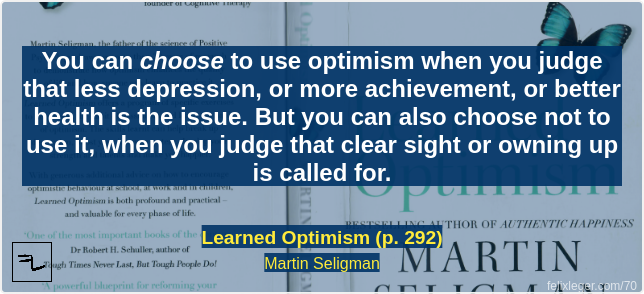
Have you ever had to balance optimism with realism in your life or work?
Optimism is often framed as a universally positive trait—a mindset that opens doors, drives progress, and inspires others. But what if optimism is not just a trait but a tool? One we can choose to use—or not—depending on the situation?
By default, I tend to be an optimist. I often lean into optimism, believing in the best outcomes and seeing potential even in challenging situations. But I’ve also recognized that sometimes my optimism veers into wishful thinking. When my optimism isn’t grounded in reality, it can lead to distress when the time comes to face the truth.
This has taught me that optimism, like any tool, needs to be used intentionally. There are moments when optimism is invaluable—helping us find hope, build resilience, and achieve more. But there are also times when clear-eyed realism and owning up to the facts are what’s truly called for.
The wisdom lies in choosing the approach that best serves the situation.
When fostering team dynamics, I often lean into optimism, focusing on possibilities and empowering others.
When navigating hard truths or addressing mistakes, I work to temper optimism with honesty and clarity, ensuring I’m staying grounded.
Choosing optimism—or not—isn’t about being naive or cynical. It’s about being thoughtful, adaptive, and intentional.
“Hunger is a notification I can ignore.”

I recently came across a profound insight in Dopamine Nation that has stayed with me:
“Hunger is a notification I can ignore.”
This realization came from someone struggling with food addiction, reframing hunger as something not to be obeyed automatically, but to be evaluated—like a notification on our phones.
It struck me how universal this concept is. We all have our “hungers.” Personally, I hunger for distractions—whether it’s YouTube videos, video games, or even just music. My brain constantly craves something external to focus on, making it incredibly difficult to sit quietly with my thoughts.
But here’s the catch: if I always give in to this hunger, I’ll never create. I’ll only consume.
The power of this mindset lies in recognizing that our desires—whether for food, entertainment, or any other distraction—are just wants, not needs. They’re notifications we can dismiss. Skipping a “meal” of our addiction doesn’t hurt us; in fact, it frees us.
Breaking free from these cycles starts with a simple yet transformative realization: We don’t have to respond to every urge.
By reframing our hungers as optional, we reclaim control over our actions and, ultimately, our lives.
Aucune mutation métaphysique ne s’accomplit sans avoir été annoncée, préparée et facilitée par un ensemble de mutations mineures, souvent passées inaperçues au moment de leur occurrence historique.
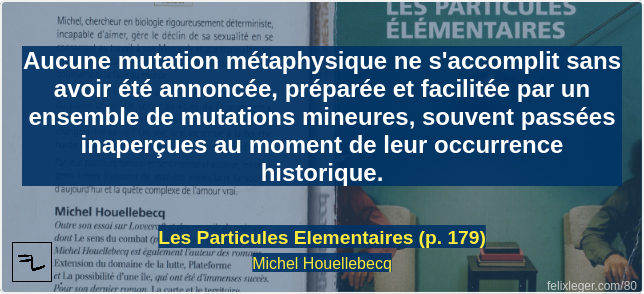
Il y a quelques jours, je suis tombé sur cette citation tirée de Les Particules élémentaires de Michel Houellebecq :
“Aucune mutation métaphysique ne s’accomplit sans avoir été annoncée, préparée et facilitée par un ensemble de mutations mineures, souvent passées inaperçues au moment de leur occurrence historique.”
Merci à Camille de m’avoir fait découvrir Houellebecq. Je ne m’attendais pas à trouver une telle sagesse dans un roman, encore moins dans un récit aussi sombre, où deux hommes se débattent avec l’absence de sens dans leur vie.
Cela m’a ramené à ma propre expérience. J’ai souvent flotté, sans direction claire, et même aujourd’hui, répondre à la question “Où te vois-tu dans cinq ans ?” reste un défi. Mais ce que j’ai appris, c’est que chaque petite amélioration que j’ai apportée à ma vie a fini par jouer un rôle.
Prenons cet exercice d’écriture sur LinkedIn. Cela repose sur des “mutations mineures” accumulées au fil du temps : apprendre à lire un livre jusqu’au bout, à prendre des notes, à organiser ces notes grâce à un système, et même à créer un site web il y a cinq ans, sans savoir qu’il servirait un jour à cela.
Sur le moment, ces efforts semblaient insignifiants, parfois inutiles. Pourtant, aujourd’hui, ils travaillent ensemble pour produire quelque chose qui me passionne et me permet de m’exprimer.
Cette citation m’a rappelé que nos petits gestes, même anodins, préparent souvent des transformations bien plus grandes.
Et vous, quelles “mutations mineures” dans votre vie ont fini par mener à quelque chose de bien plus grand ?
“L’ignorance, le désir sans frein et l’aversion sont les racines de la souffrance, les trois poisons de l’esprit.”
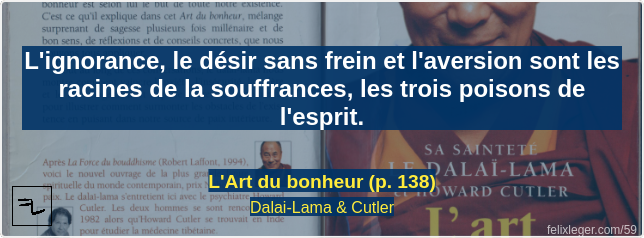
Le but de la vie, c’est le bonheur.
Le Dalaï-Lama connait le chemin vers le bonheur. Il suffit (plus facile à dire qu’à faire!) d’éliminer les poisons qui plombent nos esprits. Ainsi, la clé pour accéder au bonheur est de trouver l’antidote à chaque poison.
L’ignorance se guérit par la connaissance.
Chacun de nous sait qu’il y a un livre à lire, une recherche à faire, une question à résoudre. Et si aujourd’hui, on se donnait l’objectif d’ajouter quelque chose de nouveau à notre savoir ? Un petit pas concret, une nouvelle découverte. Je vous propose de lire pendant 15 minutes, juste un petit moment pour nourrir votre esprit.
Le désir sans frein trouve son antidote dans la maîtrise de soi.
Le vrai défi n’est pas de supprimer nos désirs, mais de développer la capacité de patienter sans souffrir. Et si aujourd’hui, nous mettions cette pratique à l’épreuve ? Lorsque votre téléphone ou votre télévision tentera d’attirer votre attention, prenez 15 minutes de pause. Observez votre relation à la patience. Est-ce un muscle à travailler ?
L’aversion se dissout grâce à la compassion.
Écouter les autres et être présent pour eux, c’est l’un des plus grands antidotes à l’aversion. Nous avons tous des proches avec qui nous savons qu’il est important de rester en contact, mais parfois, les appels se font rares. Voici un défi : appelez une de ces personnes. Juste pour dire bonjour. Soyez à l’écoute, ressentez la valeur qu’elle a pour vous. Un “je t’aime”, authentique, peut apporter une vraie chaleur, à vous comme à l’autre. Et pourquoi ne pas essayer aussi une conversation de 15 minutes sur un sujet qui vous tient à cœur ? Cela peut être un échange profond ou léger, mais l’essentiel est d’être pleinement présent et de nourrir la relation avec bienveillance.
Ces petits gestes simples, mais puissants, sont des antidotes concrets pour réduire la souffrance dans notre quotidien. Essayons de les mettre en pratique aujourd’hui.
